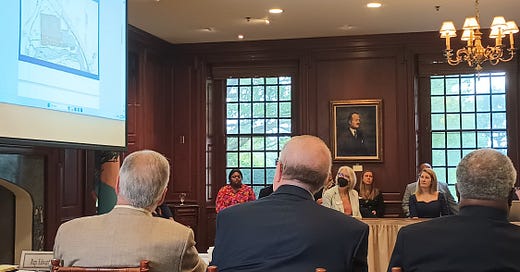Delaware now can gift taxpayer money to businesses that aren’t creating jobs
On Monday, Delaware economic development officials loosened rules that limit how they give out millions of dollars in taxpayer money, allowing companies that are not creating jobs to be eligible for state business grants.
The privately run Delaware Prosperity Partnership crafted the rule change during discussions with Gov. John Carney’s office before presenting it for approval on Monday to the state board that doles out taxpayer money to companies – called the Delaware Council on Development Finance.
The new policy will insulate Delaware businesses from market competition that could “challenge their longevity in the state,” a representative from the Delaware Prosperity Partnership said during testimony Monday morning.
“The challenge has been that they don’t necessarily create new jobs,” the Delaware Prosperity Partnership official said. “And, most of our grants are geared toward the creation of new jobs.”
Following the testimony, certain members of the Council on Development Finance expressed unease that such a rule would thrust the state further into the commercial banking business – thus shifting the risks facing companies onto the backs of Delaware government and its taxpayers.
Despite such reservations, members of the Council approved the rule change unanimously Monday.
They have similarly approved every request for taxpayer dollars from companies brought by the Delaware Prosperity Partnership since Carney created the organization in 2017.
Prior to that time, state grants to businesses were negotiated by state employees, whose activities could be publicly scrutinized through the FOIA process.
The new rule change also comes four years after lawmakers previously eased rules governing taxpayer-funded grants to companies. During the final days of the legislative session in 2019, lawmakers slipped a provision into the Delaware bond bill allowing building developers to become eligible for the state’s economic development money.
The amended legal authority stated that Delaware could pay for 3 percent of the construction of projects that cost at least $75 million, and would eventually employ 500 workers or more.
Numerous sources told me then that the rule change was designed for a Kansas City construction company planning a warehouse on a 190-acre site near Delaware City that included agricultural land and a capped landfill.
On Monday, a Delaware Prosperity Partnership official said their new rule change had not been designed with a specific company in mind.



